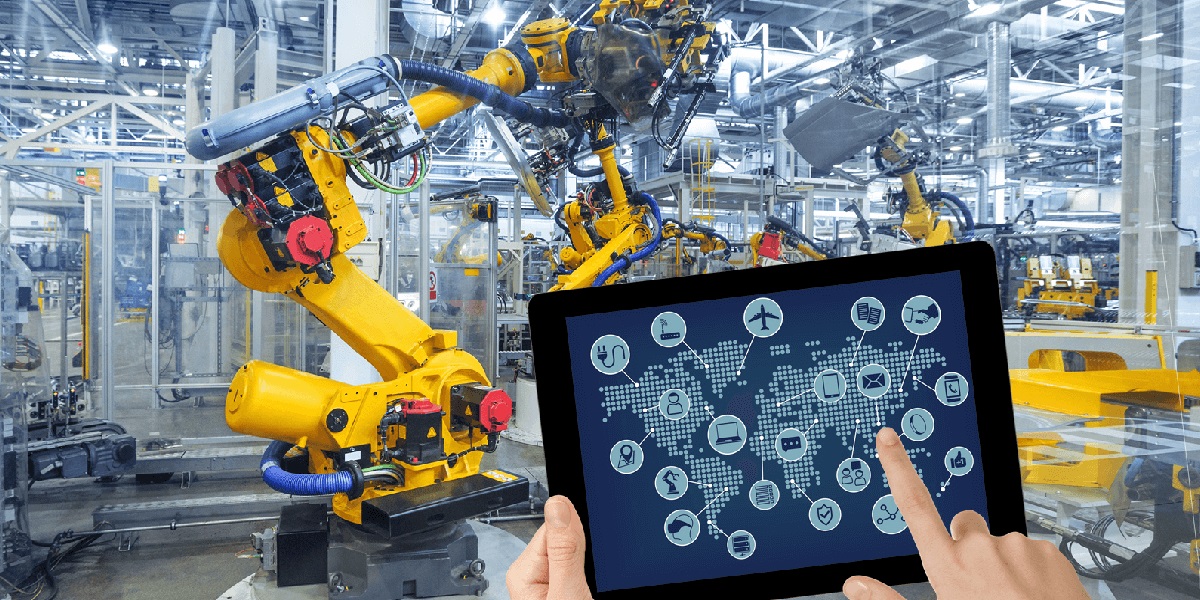The industrial revolution is a landmark in human history. It was for the first time when man gathered the ability to produce, build, and manufacture life-essentials in huge quantities. It was indeed something phenomenal. But slowly and steadily as the world population grew and with it our needs, there was a need to employ efficient production processes. Thus with every passing generation, new and improved technologies replaced the former and boosted productivity even further. In the modern information age that we live in, we are seeing an unprecedented increase in productivity and efficiency. This has been made possible by the rise of automated machines gathering live data through a dense network of billions of interconnected devices, developing a real-time map of the inter-departmental functions happening every second, and monitoring the current condition of equipment to forewarn about any hidden problems that may lead to malfunctioning of the equipment.
This post will help you discover how IoT (Internet of Things) is playing a big role in smart manufacturing and how businesses are being benefited by it.
It makes your business energy efficient
A manufacturing business has a lot of operational expenses, but the bulk of it goes toward paying for energy needs. And the only way to measure your energy expenses, the bill, further aggravates the problem by providing only the gross figure of your expenditure. It does not provide data concerning the energy consumption of particular equipment.
This is where IoT plays an important role.
It provides granular visibility about the energy consumption of every equipment in the manufacturing facility. Actionable insights help you analyze off-hour consumption, provide recommendations for optimizing production schedules, and suggest ways to save energy. It also compares different equipment of similar configuration that helps spot those that are underperforming.
It saves time and money by employing ‘Predictive Maintenance’
Gone are the days when you had to depend on historical information to complete your maintenance schedule. With IoT, you gain real-time data to make decisions rather than depend on guessing.
But how is this possible?
This is because IoT technology functions on the principle of ‘Predictive Maintenance’. The following example will help us understand this concept better. Suppose you are an auto manufacturer that applies paints on metal parts. One day, it so happens that the temperature inside the painting station rises above the threshold. Therefore the paint does not adhere to the metal surface appropriately. Unfortunately, the defect is invisible to the human eye and hence the metal part passes through inspection tests and is sent ahead. Only after a year when the customer complains you come to know about it. If the problem persists it can seriously hamper customer trust. On the other hand, if IoT sensors are pre-installed in every equipment in the paint station, they can gather real-time environment data and alert the concerned authorities when the temperature crosses the set value.
It significantly reduces downtime losses
Today, when every business process is more or less dependent on machines, even thinking about a complete system shut down is no less than a nightmare. Even an hour's delay is enough for you to miss targets and lose your coveted position in the market.
But how can IoT help you reduce downtime losses?
The following example illustrates this well. Suppose you are into die-casting manufacturing. One day, while pouring the molten metal into the mold cavity, the injection mold shut down in the middle of a run. This is potentially dangerous as the molten metal can cause damage to life and property. Also, there is a significant loss of product ingredients and associated production time. IoT devices on the other hand record the real-time condition of every equipment. So as soon as it detects a fall in productivity, it alerts the systems manager so that the problem can be resolved as early as possible and the associated downtime costs can be reduced.
To stay relevant in the manufacturing industry, it has become imperative to optimize work processes and reduce losses wherever possible. This calls for full-scale implementation of IoT technology that monitors the entire system like a watchdog, gathers real-time data from every equipment, and alerts the concerned authorities even before a real problem is encountered. Moreover, when an IoT system is integrated with an
ERP or CRM system, it provides manufacturing businesses the required impetus to become more efficient, increase their profits exponentially, and serve their customers better.

